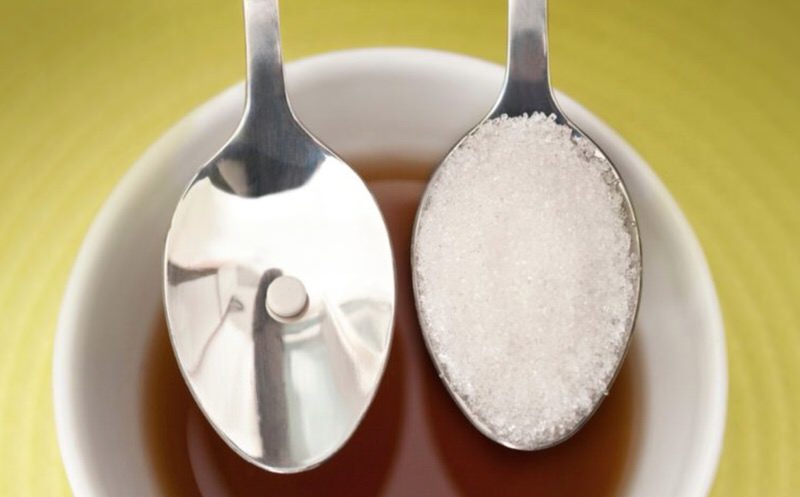White sugar has been shown to be addictive, but what alternatives are there to replace it and eliminate it from our lives? Are other options healthier?

Many investigations carried out by specialists are in charge of investigating why sugar generates so much addiction and why it costs us so much to opt for other much healthier and above all nutritious alternatives.
There are many causes that are being considered, one of them has to do with the fact that sugar is the first food we eat since we are born, in this case, breast milk, which contains not only a lot of fat, ideal for development and growth of the baby, if not, also many simple sugars, so it generates a feeling of pleasure and causes a special and unique bond with the mother.
Another cause that is also associated with the consumption of sugar has to do with how we feel, how we relate to the world and how we create bonds as we grow, that is, a rather emotional cause directly applicable to food.
As marketing and advertising play and enjoy repeatedly associating happy moments and the fact of feeling good and satisfied with our life has to be directly linked to the consumption of sweet things, such as on birthdays, the reward of doing the things well or being “good kids.”
One of the most shocking findings of some years ago is that the consumption of sugars and fats generates the same addiction and activates exactly the same parts of our brain that have to do with the consumption of some narcotics.
And of course, and not least, the amount of food that surrounds us every time we step on the street, every time we go to a cafeteria, every time we stop to drink or eat something.
We are stuffed and overstimulated due to the great demand for food of this caliber, it is a subliminal and indirect way of becoming active consumers of so much superfluous and unhealthy food.
What alternatives do we have to white sugar? Is it possible to reduce that addiction?
It is a matter of raising awareness, of investigating, of seeking truthful information from the mouths of nutritionists and food specialists with a good base, not just any informative information without rigor, nor a person who transmits information which does not know where it comes from.
We have to be aware that sugar and sweeteners in themselves are not necessary for life, for our health and even less for our brain, as we may have heard a thousand times the typical phrase that “we need sugar for the brain.”
We will mention below the varieties of sugar that exist and whether or not this alternative is worth it, because sometimes it is nothing more than the same product masked in a good name or with additives that leave much to be desired.
Sugars:
- Brown sugar: brown or white is practically the same product, because it is not even a food, it only has one difference and that is the color.
- Rapadura or panela: we can buy it in the supermarket or in herbalists if it specifically puts 100% whole cane sugar in its container and obtained under mechanical procedures since it will preserve the vitamins and various minerals such as iron, potassium or calcium.
- Coconut sugar): one of the best properties that this type of sugar has is that it does not increase the glycemic index suddenly, if not gradually and it is 100% whole.
Syrups, syrups or honey:
- Agave syrup: obtaining this syrup is completely chemical, so it is convenient to look at the packaging to find out, its glycemic index is also low.
- Bee honey: many people choose honey because it gives them more security or confidence that it comes from bees but in no case is it one of the best alternatives, since like white sugar it causes sudden hyperglycemia and in terms of the contribution of minerals and vitamins is practically nil.
- Corn syrup: it is one of the worst options and most used in the elaboration of processed products, soft drinks, juices or snacks. They contain this syrup that is obtained in a chemical way after going through several processes until it becomes a thick syrup.
Other alternatives:
- Stevia: very convenient and recommended for people who suffer from diabetes but only if it is consumed through the leaves in infusion. It is also not an advisable liquid product and if you find it in the form of granules or powder make sure that it has been obtained 100% from the leaf of the plant.
- Xylitol: extracted from birch, many nutritionists advise this alternative as long as they put on the product container that its extraction has been 100% natural, since it is sometimes obtained by chemical processes that are not advisable at all.
- Saccharin: the so recommended by doctors and used saccharin used to sweeten by a good number of people who suffer from diabetes, it is a totally laboratory synthetic product. It is also used to make other products such as unsweetened yogurts, in drinks and specific products for diabetics. Definitely not recommended.
There are definitely several alternatives that we can find in the market today.
Now it is only a matter of choosing the most appropriate one with the appropriate information, although the best alternative of all is to educate the palate.
We can begin to gradually reduce sugar in our day to day, until we can stop sweetening the morning coffee, reduce the consumption of cookies as the only snack and opt for fruit, sweets at parties and alternate fruit or desserts made in home, eliminate the consumption of soft drinks and juices when thirsty and thus a long list of things that we can change, because we will be an example for others, especially for children because they change by example.































